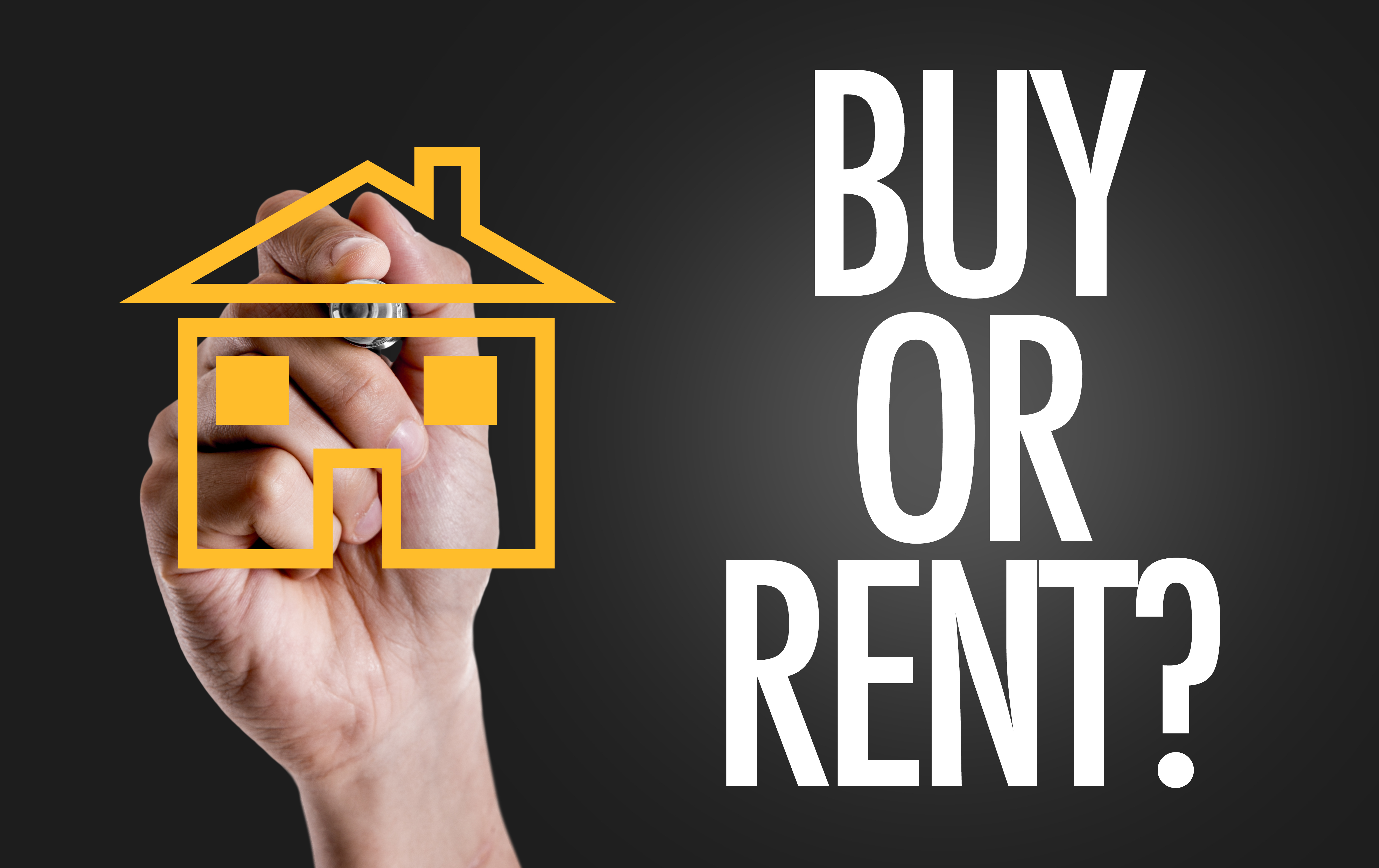Renting or Buying? What to Consider.
December 04, 2023
Rent or buy? It’s a question that carries as much debate as whether the chicken or the egg came first. The answer is very much dependent on the individual but weighing the pros and cons of each can create a path to clarity. The Rodney Carroll Team is accustomed to clients feeling overwhelmed by the decision and is ready to help map out the best options for each.
Renting a home has many positives, perhaps the most significant: flexibility.
For a variety of reasons, many people simply aren’t ready to place permanent roots in a community. Whether a transient job, a desire to explore, or an ongoing need to be mobile, renting a home allows flexibility in movement. Should a relocation become necessary, there is no need to engage realtors, spend time (or money) on must-do renovations, or enter a waiting period for a home sale.
- Renters have the ability to hand off repair costs to their landlord which many see as a huge financial bonus. Unexpected appliance failures or structural issues are costly. Renting removes the worry of surprises that come with large invoices.
- When on the move, costs are typically top of mind. For those seeking rental properties, upfront costs tend to be much lower than those associated with a home purchase. Weighing the cost of a security deposit versus a down payment steers many to rentals, even while they are saving up for that first home purchase!
- Each year, local municipalities collect funds in the form of property taxes–something that renters are not held responsible for. Many see this as a cost-saving option when budgeting, a positive for home rental.
While there are many positives when renting a home, there are also negatives to consider:
- Those taxes? Taxes do have benefits as monies paid toward property taxes can be deducted at year’s end. On top of property taxes, mortgage interest, and some home improvements can also be deducted.
- Equity, equity, equity. As a homeowner, “equity” is a favorite buzzword as each mortgage payment builds equity. For renters, this is not the case as that equity is attributed to the landlord, rather than the renter.
- Being mobile is often important to renters, however, there are times when it is not desired. Should a landlord opt to adjust the use of a property, renters may find themselves on the hunt for a new home unexpectedly.
- At the landlord’s discretion, rent may increase over time based on market conditions or personal desire. This may create a feeling of financial instability for renters.
- One of the best parts of moving into a new home is making it one’s own through decor or renovation. Home rentals often limit the ability to customize as properties maintain a more “generic” feel for future residents.
Buying a home can seem daunting but it is a process that nearly always results in excitement and satisfaction as roots become more permanent. Some less desired considerations when buying a home?
- First and foremost, that flexibility that many covet will diminish. Relocation is a bit more complicated from an “owned” home than from a rental. Typically, the process is longer and often involves some prep work.
- Market variations can make selling a home challenging whether it is up or down! In an up-market, the sale may happen at lightning speed causing a need to pivot quickly. On the flip side, a down market may cause a home’s sale to drag on longer than desired and may also mean interest rates that price out potential buyers.
- Another con of buying a home is the risk of depreciation. Should a neighborhood decline or that market take a negative turn, a home’s value may actually drop. While this is certainly rare, it is an important factor to consider.
- The big spend: Buying a home means providing a down payment and closing costs, which is typically a much greater one-time financial investment than a simple security deposit. Buying a home may also expose repairs or renovations, big or small, that must be completed before move-in.
- As time spent in a purchased home passes, there will be additional repairs that will now be up to the homeowner. As a renter, such items typically remain the responsibility of the landlord.
Yes, buying a home can seem daunting, but the rewards will quickly cause any feeling of being overwhelmed to disappear. Buying a home is an investment in YOU that has a near-guaranteed positive financial return. Other positives?
- Equity, equity, equity - but now this equity belongs to you, the homeowner. Equity is comparable to a savings account built by paying the mortgage each month. As equity is built, so is the net worth of the homeowner.
- Stability! Homeownership is a wonderful way to increase feelings of permanency and belonging. As you are welcomed to your new neighborhood, there will be an immediate sense of community and inclusion.
- Customization! There is so much joy in turning a house into a home by putting your own personal stamps inside and out without worrying about having to undo them later.
- Appreciation! Trends in real estate almost always create appreciation over the long term, which makes property investments one of the few “all but guaranteed” financial gains in life.
- Tax benefits galore! New homeowners are often surprised to discover how many tax deductions their investment will offer them. From mortgage interest to property taxes to the installation of energy-efficient features, there are many positive financial benefits!
Rent or buy? It’s a question that doesn’t necessarily have a right or wrong answer. The Rodney Carroll Team always has its eye on interest rates and real-estate trends, ready to pass along that knowledge to its clients. Talk to the Rodney Carroll Team today to map out your housing plans for 2024!
